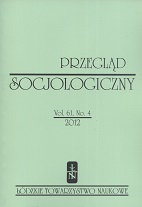USE OF THE “PRINCIPAL-AGENT” MODEL IN THE PROCESS OF INVESTIGATING AND ANALYZING REPRESENTATIVE DEMOCRACATIC SYSTEMS
USE OF THE “PRINCIPAL-AGENT” MODEL IN THE PROCESS OF INVESTIGATING AND ANALYZING REPRESENTATIVE DEMOCRACATIC SYSTEMS
Author(s): Jakub Ryszard StempieńSubject(s): Social Sciences
Published by: Łódzkie Towarzystwo Naukowe
Keywords: Representative democracy; „Principal-Agent” model; central and local government; watchdog NGOs; accountability; transparency.
Summary/Abstract: This article presents the basic elements of the “Principal-Agent” model. Some of the reasons for applying this economic model to the process of investigating and analyzing contemporary systems of representative democracies are given. The main point of the analysis is the problem of cognitive/informational asymmetry among the Principal-Agent relation. Thompson’s strategies for dimini¬shing the consequences of this asymmetry are scrutinized. From this point of view the currently growing demand for accountability and transparency of governments’ actions is discussed in article. Four possible ways of holding central and local governments accountable are proposed and analyzed. The author’s own proposal is to use three criteria – effectiveness, scope, and civic status – to describe and deliberate on the various forms for holding government accountable. The criteria and the perspective offered by the “Principal-Agent” model are also used in order to describe and analyze the activities of watchdog NGOs. Finally, some proposals are suggested for implementing the “Principal-Agent” model into research practice (both methodologically and thematically).
Journal: Przegląd Socjologiczny
- Issue Year: 61/2012
- Issue No: 4
- Page Range: 99-121
- Page Count: 23
- Language: English

